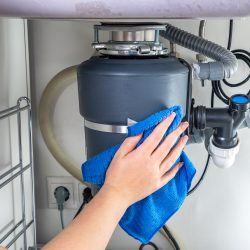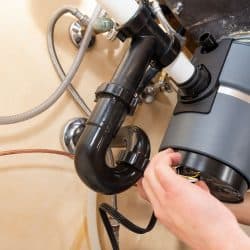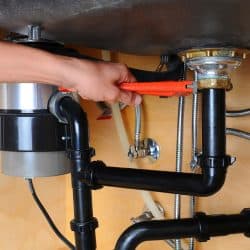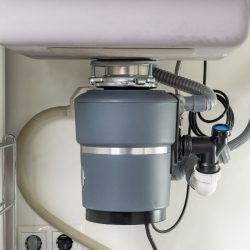The garbage disposal is an easily forgotten small appliance installed beneath the kitchen sink. Perhaps you have one or are looking into purchasing one in the future and wonder if it is considered an appliance or part of the kitchen's plumbing? We've researched these questions and have found well-researched results to share with you!
The garbage disposal is considered a small kitchen appliance that reduces food waste by breaking down large food particles with its whirling blades before the waste travels through the home's plumbing system.
Are you interested in learning more about garbage disposals and how they work? Perhaps you are wondering where does the food waste go after the garbage disposal? Or what is the point of owning and maintaining a garbage disposal? Also, which foods are restricted from garbage disposal processing? Please continue to reading; we have informative research results to share with you!
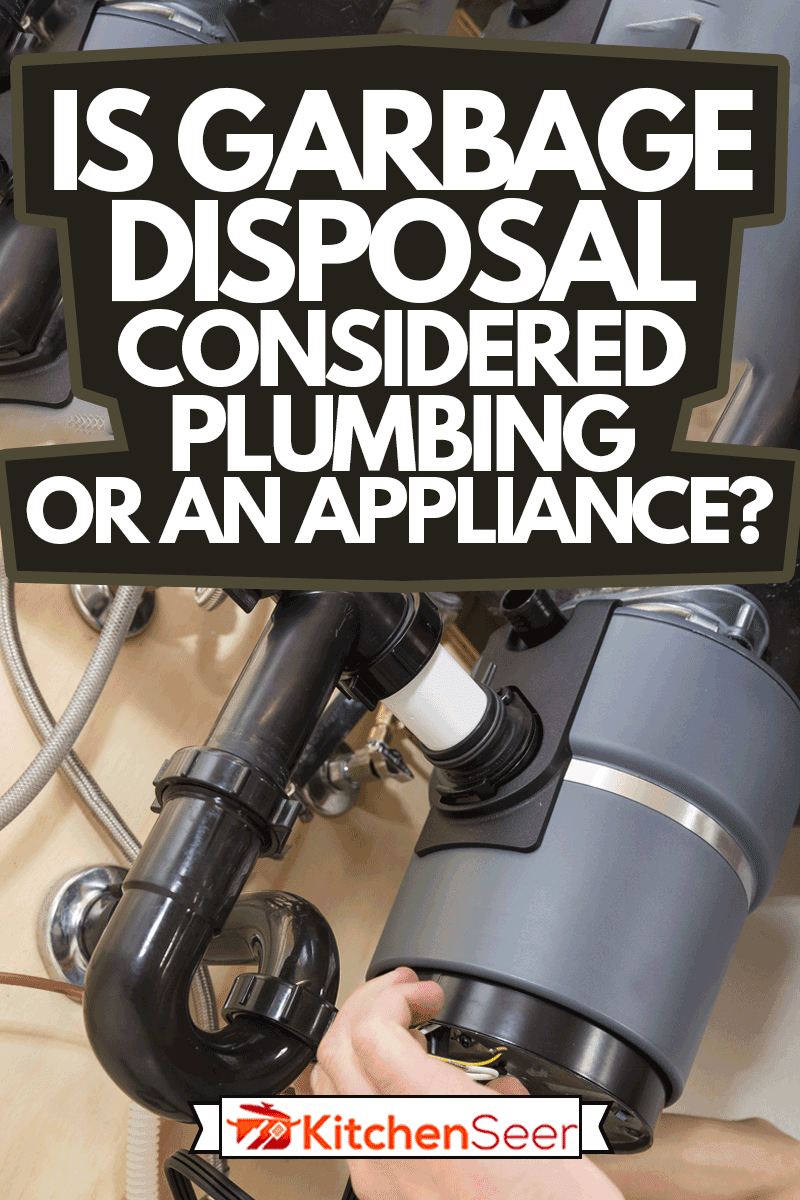
What is the Point of a Garbage Disposal?
Garbage disposals are highly functional small appliances that will dramatically redirect your homes' food waste that would otherwise end up in the local landfill.
Also, the garbage disposal will help decrease food debris build-up on the sides of the pipes. Moreover, running the garbage disposal while your dirty dishwater goes down the drain will prevent clogs in the kitchen's pipeline. This will reduce the number of times you have to call the plumber for a backed-up kitchen sink and minimize the need for harsh chemical drain cleaners in your home kitchen.
Investing in a quality garbage disposal is worth spending the extra money to ensure that you purchase an appliance that will last for an average of ten years or more. Please note that these appliances do require maintenance and, in some cases, repairs.
However, your dollars and time invested in the appliance will save a lot of food waste from the landfill. Your plumber will also appreciate your efforts.
Another benefit to owning a garbage disposal is preventing the build-up of rotting food scraps in your kitchen trash can, which will cut down on the bacteria and germ growth in your kitchen. In turn, by continually removing food scraps down the drain, your kitchen will smell fresher as well.
Click here to view the Insinkerator garbage disposal on Amazon.
Where Does the Stuff in the Garbage Disposal Go?
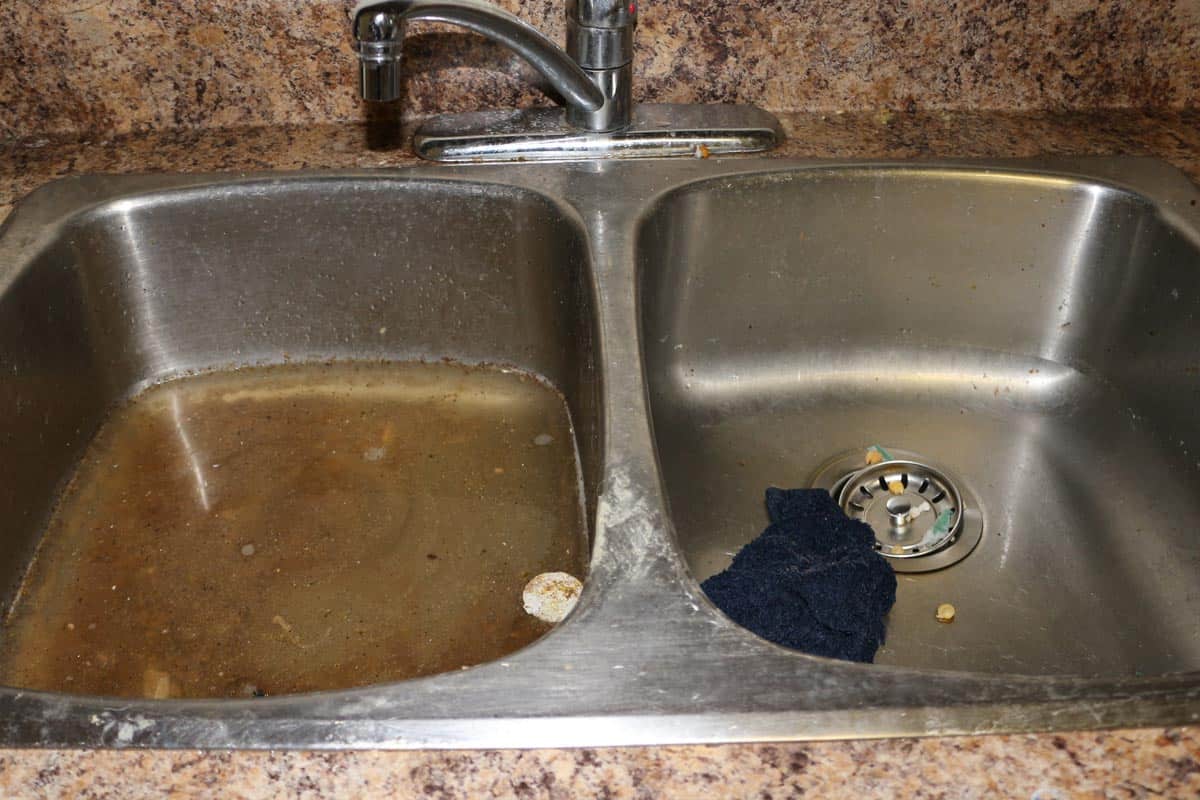
After rinsing last night's dinner scraps down the drain and the whirling disposal blades minced those scraps into watery mush. Then, the food waste travels through the kitchen plumbing system and to the city sewer or a septic system.
Suppose your home is in the city. The food waste will travel to the wastewater treatment plant, where the plant will process the waste with one of the following methods: advanced filtration, anaerobic digester, or chemical treatments.
If your house is in the country—the food particles will travel through the kitchen plumbing, the filtration, and into the septic tank. Adding food waste to your septic tank will cause it to fill much quicker and result in pumping the tank more often.
Suppose your kitchen has a quality dishwasher. You might wonder whether it has a built-in garbage disposal? Click here to read Do Dishwashers Have Garbage Disposals?
Are Garbage Disposals Bad for Plumbing?
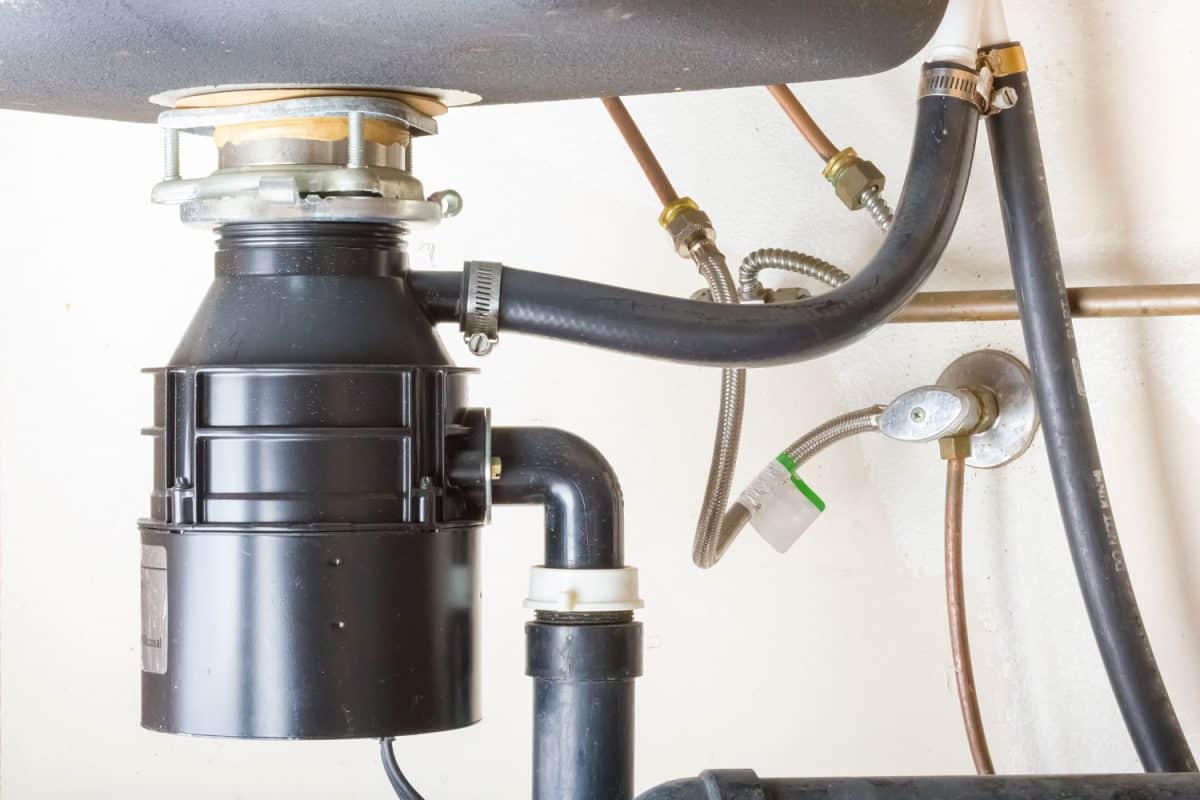
Garbage disposals are designed to reduce food waste and protect the plumbing from clogs and trapped debris. Although many plumbers do encourage homeowners to use garbage disposals to help keep the kitchen pipes debris-free. Several plumbers claim that many of the garbage disposal issues reported by consumers are from misusing the appliance.
Here is an example of how to use a garbage disposal correctly; only process foods that are safe for garbage disposal usage. Always let the water run long enough after processing the foods to flush the garbage disposal and ensure enough water will push the food waste through the plumbing system.
Furthermore, garbage disposals are only productive and safe for plumbing when used correctly.
For the best results, have your appliance installed by a plumbing professional. Ask them to make sure your pipes are clean and deposit-free before installing the new garbage disposal under the kitchen sink.
Read the instruction manual. Only use the appliance and provide maintenance as directed by the manufacturer. Please note that the garbage disposal will break and emit a nasty odor in your kitchen without consistent maintenance.
Click here to view the Arm & Hammer garbage disposal cleaner on Amazon.
This cleaner is an excellent non-toxic product that will clean, freshen, and deodorize your garbage disposal in minutes. It is a great product for taking excellent care of your garbage disposal.
What are the Worst Things to Put Down a Garbage Disposal?
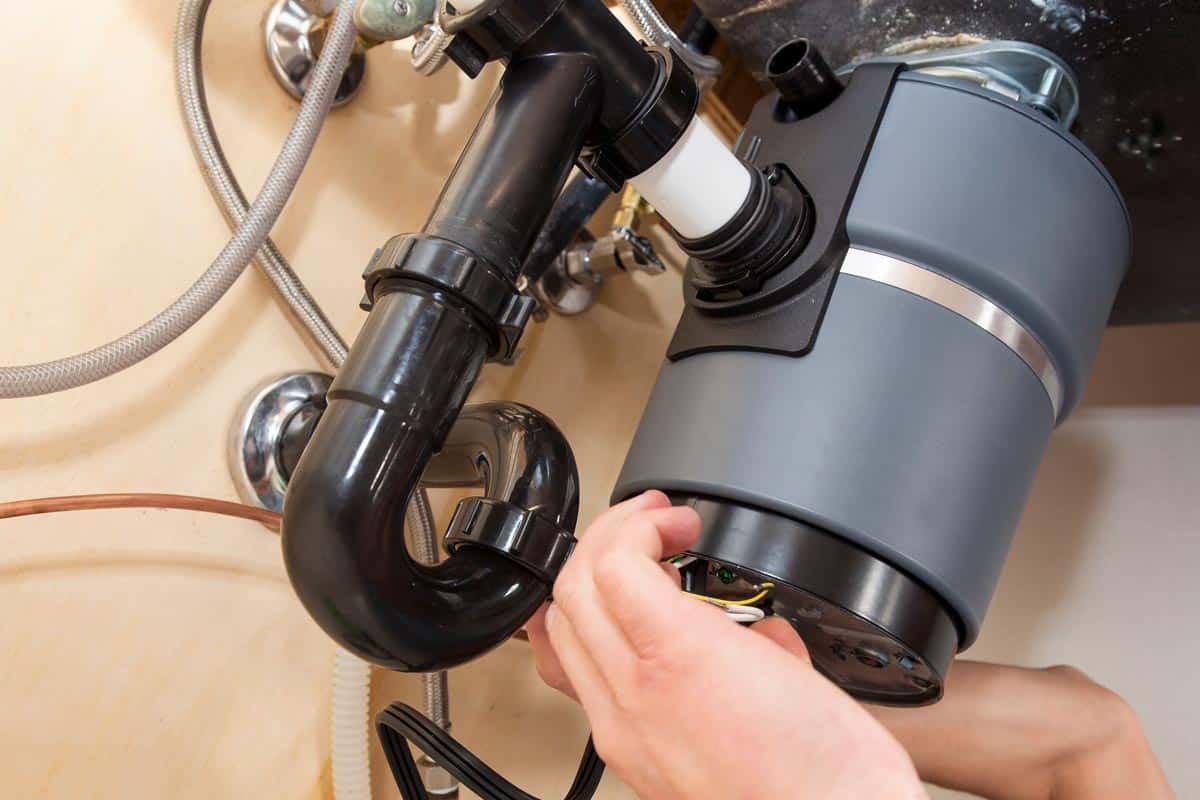
Cooks should never pour greases, fats, or any oils into a garbage disposal. Because once the fats have cooled, those will harden within the pipes, creating blockages that will cause the kitchen sink to fill with standing water.
Also, those with septic systems will have issues with grease accumulation in the septic tank that will require more frequent pumping to avoid potential problems with septic tank overflow.
Types of food waste should never go into the garbage disposal, and why?
Please follow these guidelines and the suggested maintenance presented in the garbage disposal's owner's manual to prevent these issues. This way, you can ensure that you will keep your garbage disposal clog-free and in working condition. Here are some foods that should never go in your garbage disposal:
Eggshells and Shellfish
Avoid eggshells and shellfish; those will not break down entirely, even after going through the garbage disposal. Instead, they will accumulate in the garbage disposal and the kitchen sinks' drain piping.
Dairy Products
Also, foods containing dairy—like butter, creams, and ice creams should never go in the garbage disposal. The reason is that the dairy-based fats will solidify and cause clogs in the garbage disposal or your kitchen pipes.
Coffee Grounds
Coffee grounds will easily slip through the garbage disposal without issues. However, the grounds will cling to the sides of the pipes and mesh with other clogs and food debris, making a massively tough clog to dislodge. Consider dumping your coffee grounds directly into the compost or trash to avoid this issue altogether.
Starchy Foods
Starchy foods like noodles and rice are best avoided because the starchy food particles will get diced up in the garbage disposal and lumped together. Forming a sizeable starchy clog that will block the drain and cause the garbage disposal blades to gum up with starchy debris.
Fibrous Vegetables
Fibrous vegetables like artichokes, asparagus, celery, cornhusks, edamame pods, string beans, and rhubarb are problematic for garbage disposals. Even the best garbage disposals on the market with multi-grind technology can only grind up these vegetables in small amounts.
The average garbage disposal will partially slice the fibrous vegetables, and the strong fibers will wrap up into a sizeable ball and clog the kitchen pipes.
In closing
Garbage disposals will significantly reduce your trash output and help lessen the burden on your local landfill. Great news for Mother Earth, less food waste going into landfills! We hope that this article has helped you learn valuable information about garbage disposals. Please visit kitchenseer.com soon for additional educational content and culinary inspirations!
Learning about small appliances is exciting and will help you become a better-educated consumer. Before you go, please, be sure to check out some of our other posts to find helpful suggestions for everyday household issues.
Do Dishwashers Waste Or Save Water And Electricity?
How High Should Kitchen Counter Outlets And Light Switches Be?
How To Keep Your Kitchen Trash Can From Sliding On The Floor



